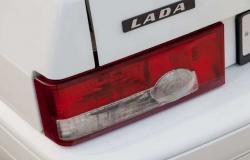Now it’s official: the sale of Tim’s landline network to the American fund KKR will take place next Monday (1 July). After the unconditional green light from the Antitrust, it was an expected announcement, but it is in fact the conclusion of a path not without obstacles that will start the relaunch of the company. The operation «will allow us to reduce the level of debt and eliminate those bureaucratic constraints that did not allow us to compete with other players; constraints that were anachronistic”, said the CEO of Tim, Pietro Labriola, guest of the event on the 50th anniversary of Il Giornale at the IBM Studios in Milan. «From July 2nd we will no longer have these constraints and we will become like all the other operators», he added. The announcement of the closing date had a positive impact on Tim’s stock which yesterday closed the day with a 3% jump to 0.231 euros.
Now, however, the best part will come: once the network has been sold, with a closing defined by Labriola himself as “irreversible”, there are other things to sort out starting from a title that does not yet fully reflect the scenario that has changed radically in recent months. The idea, in this sense, is to start a grouping of shares with a ratio that could be five old ones to one new one. That is to say that the stock, at yesterday’s prices, would reach above the euro threshold (1.15) per share and this would reduce the whirlwind speculative movements that have occurred in the last two years. In fact, we must not forget that a significant part of the capital is in the hands of small savers (around 35%). Among other things, Tim’s capital still has a share of almost 30% of savings shares, which do not carry voting rights but can draw on greater dividends. In this sense, among the various hypotheses that are being examined, there would be the idea of converting them into ordinary ones, an operation that would require the payment of a premium to the small shareholders who own them. However, it will not only be the merging of shares that will give strength to the stock. The promise of a return to the dividend will be a powerful incentive for purchases, since the treasure to be collected from the earn-outs attributable to the sale of the network is huge: it is, in fact, an additional 2.5 billion that would arrive if they occurred some conditions, the main one being the marriage between NetCo (the company that will be born after the separation of the network) with Open Fiber. Not to forget the incoming offer from the Ministry of Economy and the Asterion fund for Sparkle’s international cables, which should be worth 800 million. Also on the table are 3-400 million from the valorisation of the remaining shares of Inwit. All propellant to be allocated, in part, to the return of the dividend for shareholders, but which – together with the return of profitability – could animate the ideas of risk in the world of Italian mobile telephony. «We must first work on the numbers», said Labriola, «we must work on consumer, enterprise and Brazil».
And the rumor mill has already started, so much so as to stimulate the analysts’ scenarios: «On the consumer front, we believe – writes Giorgio Tavolini of Intermonte in a report – that a deal between Tim and PosteMobile would have lower antitrust risks compared to a combination with Iliad in terms of concentration both in residential mobile market shares (Tim at 21.9%, PosteMobile at 5.9%, Iliad at 15.8%) and in spectrum and could guarantee interesting synergies”.





